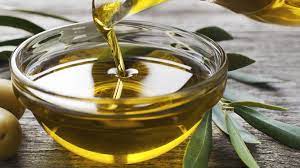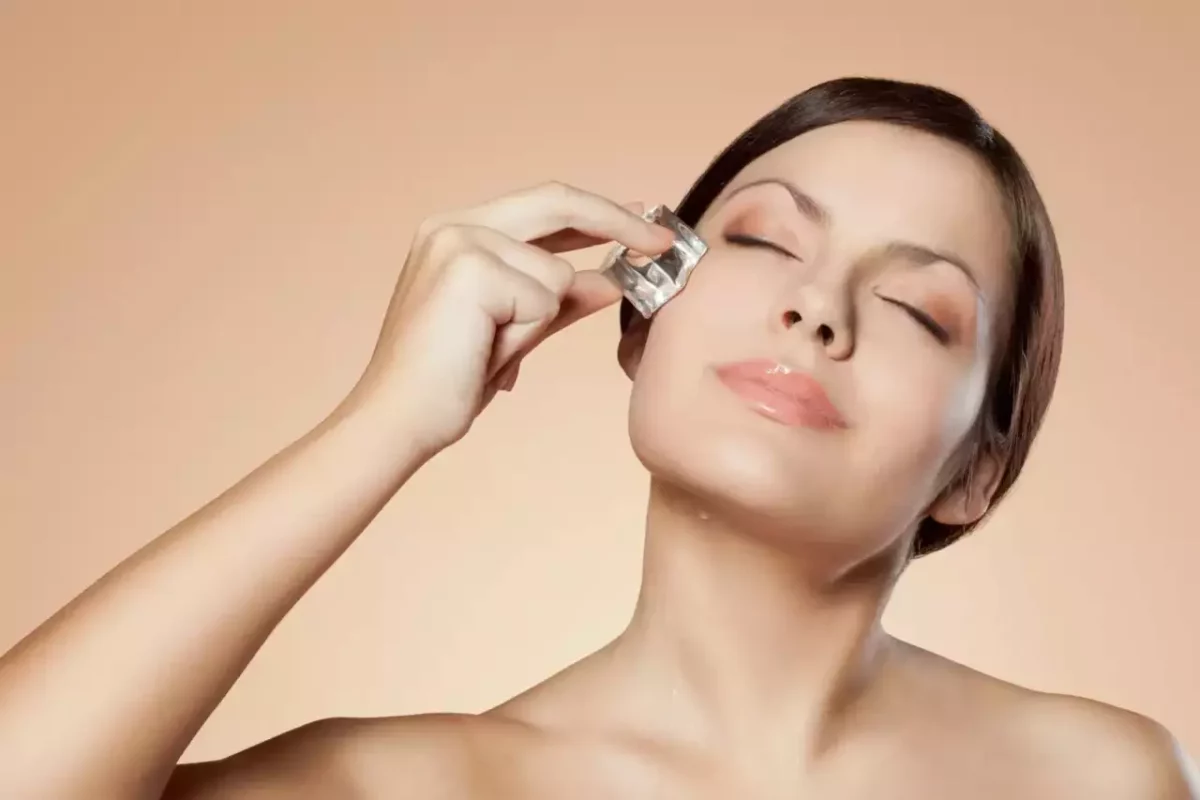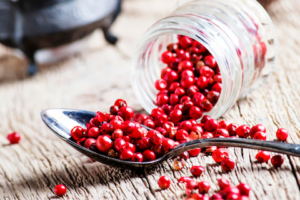Olives are small fruits that are commonly used in cooking and enjoyed as a snack. They are rich in healthy monounsaturated fats, vitamins, minerals, and antioxidants. Consuming olives and olive oil has been associated with various health benefits. However, it’s important to note that olives are high in sodium, so individuals on a low-sodium diet should consume them in moderation. Here are 11 health benefits of olives, along with some potential side effects:
Health Benefits of Olives:
- Heart Health: Olives are a good source of monounsaturated fats, which have been shown to help reduce LDL cholesterol levels and lower the risk of heart disease.
- Antioxidant Properties: Olives contain polyphenols, which are potent antioxidants that help protect the body against oxidative stress and reduce inflammation.
- Cancer Prevention: The antioxidants in olives may help prevent certain types of cancers, such as breast and colon cancer, by neutralizing free radicals and reducing DNA damage.
- Anti-Inflammatory Effects: The polyphenols and oleic acid found in olives have anti-inflammatory properties that may help reduce inflammation in the body and alleviate symptoms of inflammatory conditions.
- Digestive Health: Olives are a good source of dietary fiber, which aids in digestion and promotes regular bowel movements. The fiber content also helps maintain a healthy gut microbiome.
- Bone Health: Olives contain minerals like calcium, magnesium, and phosphorus, which are essential for maintaining strong bones and preventing conditions like osteoporosis.
- Weight Management: Olives are a satisfying and low-calorie snack option that can help control hunger and promote weight management when consumed in moderation.
- Skin Health: The antioxidants in olives help protect the skin from oxidative damage caused by free radicals, which can help reduce signs of aging and improve overall skin health.
- Blood Sugar Control: The monounsaturated fats in olives, along with their low carbohydrate content, may help stabilize blood sugar levels and improve insulin sensitivity.
- Eye Health: Olives contain vitamin E and other antioxidants that help protect the eyes from age-related macular degeneration (AMD) and other vision problems.
- Anti-Infective Properties: Olives contain compounds that have been shown to exhibit antimicrobial activity and may help fight against certain bacteria and viruses.
Health Side-effects of Olive
While olives offer numerous health benefits, there are also potential side effects to consider. Here are some possible side effects associated with olives:
- Allergic Reactions: Some individuals may be allergic to olives, resulting in symptoms such as itching, swelling, hives, or digestive discomfort. If you experience any allergic reactions after consuming olives, it’s best to avoid them and seek medical advice.
- High Sodium Content: Olives, especially those that have been brined or cured, are known to have a high sodium content. Excessive sodium intake can lead to increased blood pressure, water retention, and potential cardiovascular risks. People on a low-sodium diet or with hypertension should consume olives in moderation or opt for low-sodium varieties.
- Caloric Density: While olives can be part of a healthy diet, they are relatively high in calories due to their fat content. Overconsumption of olives, especially if not accounted for in overall calorie intake, can contribute to weight gain. Moderation is essential, particularly for individuals aiming to manage their weight.
- Interference with Medications: Olives may interact with certain medications. For example, consuming large amounts of olives while taking blood thinners may increase the risk of bleeding. If you are taking any medications, it’s advisable to consult with your healthcare provider regarding potential interactions.
- Gastrointestinal Issues: In some cases, eating a large quantity of olives or consuming them on an empty stomach can lead to gastrointestinal discomfort such as bloating, gas, or diarrhea. It’s recommended to eat olives in moderation and with other foods to avoid these issues.
- Oxalate Content: Olives contain oxalates, which can contribute to the formation of kidney stones in susceptible individuals. If you have a history of kidney stones or are at risk, it’s advisable to moderate your olive consumption and consult with a healthcare professional.
- Mold Contamination: Olives can sometimes become contaminated with molds, particularly if improperly stored. Moldy olives can cause various health issues if consumed, including digestive problems and allergic reactions. Ensure that the olives you consume are fresh, properly stored, and not visibly moldy.
- Pesticide Residues: Conventionally grown olives may contain pesticide residues. If you are concerned about pesticide exposure, consider choosing organic olives, which are grown without synthetic pesticides.
- Interaction with Gout: People with gout may need to limit their intake of foods high in purines, as they can contribute to increased uric acid levels and gout flare-ups. While olives contain low levels of purines, individuals with gout should monitor their intake and consult with a healthcare professional.
- Staining Potential: The dark pigment in olives, particularly in black or Kalamata varieties, can potentially stain teeth or clothing. It’s advisable to be mindful of this when consuming olives or when using them in cooking.
- FODMAPs: Olives contain fermentable carbohydrates known as FODMAPs (fermentable oligosaccharides, disaccharides, monosaccharides, and polyols). Some individuals with irritable bowel syndrome (IBS) or other digestive disorders may experience symptoms such as bloating or gas after consuming foods high in FODMAPs. If you have these conditions, you may want to limit your intake of olives.
It’s important to remember that these side effects are not experienced by everyone, and many people can enjoy olives as part of a balanced diet without any issues. However, if you have any concerns or specific health conditions, it’s recommended to consult with a healthcare professional or a registered dietitian before making significant changes to your diet.
Also Read: WELLHEALTHORGANIC.COM:DIET-FOR-EXCELLENT-SKIN-CARE-OIL-IS-AN-ESSENTIAL-INGREDIENT
Conclusion
In conclusion, olives offer various health benefits due to their nutrient content, including monounsaturated fats, antioxidants, vitamins, and minerals. These benefits include improved heart health, antioxidant protection, potential cancer prevention, anti-inflammatory effects, digestive health promotion, support for bone health, weight management assistance, skin health enhancement, blood sugar control, eye health protection, and potential anti-infective properties.
FAQ
Q: Are olives a healthy snack?
A: Yes, olives can be a healthy snack option. They contain beneficial monounsaturated fats, antioxidants, and other nutrients. However, it’s important to consume them in moderation due to their high sodium and calorie content.
Q: Can olives help with weight loss?
A: Olives can be a part of a weight loss plan as they are low in carbohydrates and can help control hunger due to their satisfying nature. However, they are calorie-dense, so portion control is necessary to avoid excessive calorie intake.
Q: Are olives good for heart health?
A: Yes, olives are good for heart health. Their monounsaturated fats can help reduce LDL cholesterol levels and lower the risk of heart disease.
Q: Can olives help lower blood pressure?
A: Olives themselves do not have a direct blood pressure-lowering effect. However, their low sodium content and the presence of heart-healthy monounsaturated fats can contribute to overall heart health, which is beneficial for blood pressure management.
Q: Can olives be beneficial for skin health?
A: Yes, the antioxidants in olives can help protect the skin from oxidative damage and contribute to overall skin health. However, relying solely on olives for skin health is not sufficient, and a well-rounded skincare routine and a balanced diet are recommended.
Q: Can olives cause allergies?
A: Yes, some individuals may be allergic to olives and may experience symptoms such as itching, swelling, hives, or digestive discomfort. If you suspect an olive allergy, it’s best to avoid them and consult with a healthcare professional.
Q: Can olives increase the risk of kidney stones?
A: Olives contain oxalates, which can contribute to the formation of kidney stones in susceptible individuals. If you have a history of kidney stones or are at risk, it’s advisable to moderate your olive consumption and consult with a healthcare professional.
Q: Are there any interactions between olives and medications?
A: Olives may interact with certain medications. For example, consuming large amounts of olives while taking blood thinners may increase the risk of bleeding. If you are taking medications, it’s best to consult with your healthcare provider regarding potential interactions.
Q: Are there different types of olives with varying health benefits?
A: Yes, there are various types of olives, including green olives, black olives, Kalamata olives, and more. The health benefits may vary slightly between different types, but overall, olives offer similar nutritional benefits across varieties.
Q: Can olives be included in a low-sodium diet?
A: Olives are naturally high in sodium, so individuals on a low-sodium diet should consume them in moderation or opt for low-sodium varieties. It’s important to consider the overall sodium content of your diet when incorporating olives.
Q: Can olives be harmful to dogs?
A: While olives themselves are not toxic to dogs, they should be given to dogs in moderation due to their high sodium content. Additionally, some olives may have pits that can pose a choking hazard or cause gastrointestinal issues if swallowed. It’s best to consult with a veterinarian before giving olives to your dog.






















